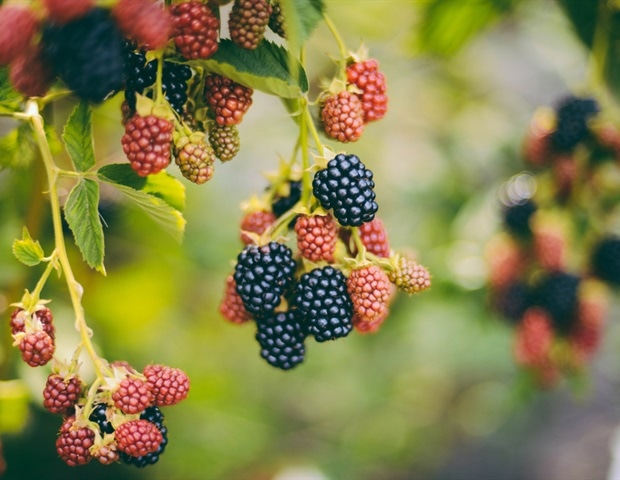Eating plant-based foods that contain dietary compounds called flavonols can lower your chances of developing frailty.
Foods like apples and blackberries that contain flavonoids called quercetin may be the most important for frailty prevention.
Approximately 10% to 15% of older adults experience frailty, a geriatric syndrome that leads to a greater risk of falls, fractures, disability, hospitalization, and mortality. Current dietary recommendations for frailty prevention primarily focus on protein intake. However there are many other foods that may have health benefits
"There may be some validity to the old saying, an apple a day keeps the doctor (or frailty) away," said the authors. "Our findings suggest that for every 10 mg higher intake of flavonols per day, the odds of frailty were reduced by 20%. Individuals can easily consume 10 mg of flavonols intake per day since one medium sized apple has about 10 mg of flavonols."
"Although there was no significant association between total flavonoid intake and frailty, higher flavonols intake (one of the subclasses of flavonoids) was associated with lower odds of developing frailty. Specifically, higher quercetin intake was the flavonoid that had the strongest association with frailty prevention. This data suggests that there may be particular subclasses of flavonoids that have the most potential as a dietary strategy for frailty prevention," said coauthor Shivani Sahni, PhD, of Department of Medicine, Beth Israel Deaconess Medical Center, Harvard Medical School, and the Hinda and Arthur Marcus Institute for Aging Research, Hebrew SeniorLife; and Courtney L. Millar, PhD, of the Department of Medicine, Beth Israel Deaconess Medical Center, Harvard Medical School, and the Hinda and Arthur Marcus Institute for Aging Research, Hebrew SeniorLife.
The authors suggest that future research should focus on dietary interventions of flavonols or quercetin for the treatment of frailty. Research is also needed in racially and ethnically diverse participants.
The findings were published in the American Journal of Clinical Nutrition article, "Higher Intake Of Dietary Flavonols, Specifically Dietary Quercetin, Is Associated With Lower Odds Of Frailty Onset Over 12-Years Of Follow-Up Among Adults In The Framingham Heart Study." This is one of the first community-based studies that comprehensively examined the role of dietary flavonoids for frailty prevention.
Hebrew SeniorLife Hinda and Arthur Marcus Institute for Aging Research
Oei, S., et al. (2023) Higher Intake Of Dietary Flavonols, Specifically Dietary Quercetin, Is Associated With Lower Odds Of Frailty Onset Over 12-Years Of Follow-Up Among Adults In The Framingham Heart Study. American Journal of Clinical Nutrition. doi.org/10.1016/j.ajcnut.2023.04.013.
Posted in: Medical Science News | Medical Research News | Healthcare News
Tags: Aging, Blackberries, Blood, Disability, Doctor, Flavonoid, Gerontology, Heart, Medical School, Medicine, Mortality, Nutrition, Phenotype, Protein, Quercetin, Research, Seniors, Syndrome
Source: Read Full Article



